A construct like x = x++; indicates you're probably misunderstanding what the ++ operator does:
// original code
int x = 7;
x = x++;
Let's rewrite this to do the same thing, based on removing the ++ operator:
// behaves the same as the original code
int x = 7;
int tmp = x; // value of tmp here is 7
x = x + 1; // x temporarily equals 8 (this is the evaluation of ++)
x = tmp; // oops! we overwrote y with 7
Now, let's rewrite it to do (what I think) you wanted:
// original code
int x = 7;
x++;
The subtlety here is that the ++ operator modifies the variable x, unlike an expression such as x + x, which would evaluate to an int value but leave the variable x itself unchanged. Consider a construct like the venerable for loop:
for(int i = 0; i < 10; i++)
{
System.out.println(i);
}
Notice the i++ in there? It's the same operator. We could rewrite this for loop like this and it would behave the same:
for(int i = 0; i < 10; i = i + 1)
{
System.out.println(i);
}
I also recommend against using the ++ operator in larger expressions in most cases. Because of the subtlety of when it modifies the original variable in pre- versus post-increment (++x and x++, respectively), it is very easy to introduce subtle bugs that are difficult to track down.
